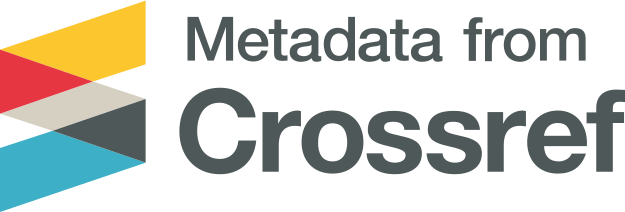Praktik Penghindaran Pajak Sebelum dan Setelah Pandemi Covid – 19 di Indonesia
Abstract views: 12503 | PDF downloads: 8695
Abstract
ABSTRACT
Weak economic conditions during the Covid-19 pandemic resulted in a decline in tax revenue in Indonesia. The government seeks to increase economic activity by providing tax incentive programs to taxpayers affected by the Covid-19 pandemic. However, the company considers the program as one of the loopholes to practice tax avoidance. This study aims to look at the differences in tax avoidance practices before and during the Covid-19 pandemic. The type of data used is quantitative data derived from the annual financial statements. The population in this study are manufacturing companies listed on the Indonesia Stock Exchange (IDX) for the 2019-2020 period. The sample of this research was taken based on purposive sampling using certain criteria so as to get 78 samples from 39 manufacturing companies. The method used in this study is paired samples t-test analysis using the IBM SPSS Statistics 24 tool. Based on the results of this study, it shows that there is an increase in tax avoidance practices during the Covid-19 pandemi. This resulted in a decrease in state tax revenues during 2020.
ABSTRAK
Lemahnya kondisi ekonomi dimasa pandemi Covid-19 mengakibatkan turunnya penerimaan pajak di Indonesia. Pemerintah berupaya untuk meningkatkan kegiatan ekonomi dengan cara memberikan program insentif perpajakan kepada wajib pajak yang terkena dampak pandemi Covid-19. Namun perusahaan menganggap program tersebut sebagai salah satu celah untuk melakukan praktik penghindaran pajak. Penelitian ini bertujuan untuk melihat perbedaan praktik penghindaran pajak sebelum dan saat pandemi Covid-19. Jenis data yang digunakan adalah data kuantitatif yang berasal dari laporan keuangan tahunan. Populasi dalam penelitian ini yaitu perusahaan manufaktur yang terdaftar di Bursa Efek Indonesia (BEI) periode 2019-2020. Sampel penelitian ini diambil berdasarkan purposive sampling dengan menggunakan beberapa kriteria tertentu sehingga mendapatkan 78 sampel dari 39 perusahaan manufaktur. Metode yang digunakan dalam penelitian ini yaitu analisis paired samples t-test dengan menggunakan alat bantu IBM SPSS Statistics 24. Berdasarkan hasil penelitian ini menunjukkan bahwa terjadi peningkatan praktik penghindaran pajak pada saat pandemi Covid-19. Sehingga mengakibatkan penerimaan pajak Negara selama tahun 2020 mengalami penurunan.
References
Adisamartha, & Noviari. (2015). ISSN : 2303-1018 E-Jurnal Akuntansi Universitas Udayana Vol . 13 . 3 Desember (2015) : 973-1000 WAJIB PAJAK BADAN Fakultas Ekonomi dan Bisnis Universitas Udayana Bali, Indonesia Fakultas Ekonomi dan Bisnis Universitas Udayana Bali , Indonesia Keywords : The Effect of Liquidity, Leverage, Inventory Intensity and Intensity of Fixed Assets on the Aggressiveness Level of Corporate Taxpayers, 13, 973–1000.
Anggraeni, T., & Oktaviani, R. M. (2021). Dampak Thin Capitalization, Profitabilitas, Dan Ukuran Perusahaan Terhadap Tindakan Penghindaran Pajak. Jurnal Akuntansi Dan Pajak, 21(02), 390–397. https://doi.org/10.29040/jap.v21i02.1530
Asmara, C. G. (2020). Indonesia Resmi Resesi, Ini Buktinya “Perihnya” di Masyarakat. Retrieved from https://www.cnbcindonesia.com/news/20201107082302-4-200008/indonesia-resmi-resesi-ini-buktinya-perihnya-di-masyarakat
Chen, S., Xu, L., & Jebran, K. (2021). The effect of Confucian culture on corporate tax avoidance: evidence from China. Economic Research-Ekonomska Istrazivanja , 34(1), 1342–1365. https://doi.org/10.1080/1331677X.2020.1825105
Firmansyah, A., & Ardiansyah, R. (2020). Bagaimana Praktik Manajemen Laba Dan Penghindaran Pajak Sebelum Dan Setelah Pandemi Covid19 Di Indonesia?, 24(2), 32–51. Retrieved from www.idx.co.id.
Hanlon, M., & Heitzman, S. (2010). A review of tax research. Journal of Accounting and Economics, 50(2–3), 127–178. https://doi.org/10.1016/j.jacceco.2010.09.002
Irianto, D. B. S., & S.Ak, A. W. (2017). The Influence of Profitability, Leverage, Firm Size and Capital Intensity Towards Tax Avoidance. International Journal of Accounting and Taxation, 5(2), 33–41. https://doi.org/10.15640/ijat.v5n2a3
Jensen, M. C., & Meckling, W. H. (1976). Theory of The Firm: Managerial Behavior, Agency Cost and Ownership Structure. Journal of Financial Economics, 3, 305–360.
Kementrian Keuangan RI. (2020a). INSENTIF PAJAK UNTUK WAJIB PAJAK TERDAMPAK PANDEMI CORONA VIRUS DISEASE 2019. Retrieved from https://perpajakan.ddtc.co.id/peraturan-pajak/read/peraturan-menteri-keuangan-86pmk-032020
Kementrian Keuangan RI. (2020b). Pemerintah Berikan Insentif Pajak untuk Dukung DUnia Usaha dan Masyarakat Selama Pandemi COVID-19. Retrieved from https://www.kemenkeu.go.id/publikasi/berita/pemerintah-berikan-insentif-pajak-untuk-dukung-dunia-usaha-dan-masyarakat-selama-pandemi-covid-19/
Khoirul Nisa, A., & Wulandari, S. (2021). Pengaruh Tax Avoidance Dan Kepemilkan Institusional Terhadap Cost of Debt Pada Perusahaan Makanan Dan Minuman. Jurnal Aplikasi Akuntansi, 5(2), 201–219. https://doi.org/10.29303/jaa.v5i2.101
Laffitte, S., Martin, J., Parenti, M., Souilard, B., & Farid, T. (2020). International Corporate Taxation after Covid-19: Minimum Taxation as the New Normal, (30), 6.
Marteleto, L. J., Guedes, G., Coutinho, R. Z., & Weitzman, A. (2020). Live Births and Fertility Amid the Zika Epidemic in Brazil. Demography, 57(3), 843–872. https://doi.org/10.1007/s13524-020-00871-x
Nidya, I. R. (2020). 5 Upaya Pemerintah Kembalikan Pertumbuhan Perekonomian Nasional. Retrieved from https://nasional.kompas.com/read/2020/08/07/16224171/5-upaya-pemerintah-kembalikan-pertumbuhan-perekonomian-nasional
Nordiansyah, E. (2020). Lebih dari 451 Ribu Pengusaha Minta Insentif Pajak, Berapa yang Disetujui? Retrieved from https://www.medcom.id/ekonomi/makro/nbwlQwxk
Pattiasina, V., Tammubua, M. H., Numberi, A., Patiran, A., & Temalagi, S. (2019). Capital Intensity and tax avoidance. International Journal of Social Sciences and Humanities, 3(1), 58–71. https://doi.org/10.29332/ijssh.v3n1.250
Septiawan, K., Ahmar, N., & Darminto, D. P. (2021). Detection of Tax Avoidance Due to the COVID-19 Pandemi with the Tax Aggressiveness Model. Proceedings of the 2nd International Conference on Business and Management of Technology (ICONBMT 2020), 175, 170–174. https://doi.org/10.2991/aebmr.k.210510.029
Suhaidar, Rosalina, E., & Pratiwi, A. (2020). FAKTOR-FAKTOR YANG MEMPENGARUHI PENGHINDARAN PAJAK DAMPAK SEBELUM DAN SELAMA COVID-19 PADA PERUSAHAAN MANUFAKTUR. Conference on Economic and Business Innovation, 19(11), 3–16.
Sunarto, S., Widjaja, B., & Oktaviani, R. M. (2021). The Effect of Corporate Governance on Tax Avoidance: The Role of Profitability as a Mediating Variable. The Journal of Asian Finance, Economics and Business, 8(3), 217–227. https://doi.org/https://doi.org/10.13106/jafeb.2021.vol8.no3.0217
Temsah, M. H., Al-Sohime, F., Alamro, N., Al-Eyadhy, A., Al-Hasan, K., Jamal, A., … Somily, A. M. (2020). The psychological impact of COVID-19 pandemi on health care workers in a MERS-CoV endemic country. Journal of Infection and Public Health, 13(6), 877–882. https://doi.org/10.1016/j.jiph.2020.05.021
Wildan, M. (2020). Indonesia Diperkirakan Rugi Rp69 Triliun Akibat Penghindaran Pajak. Retrieved from https://news.ddtc.co.id/indonesia-diperkirakan-rugi-rp69-triliun-akibat-penghindaran-pajak-25729?page_y=554
Copyright (c) 2021 Fa'iq Mirza Barid, Sartika Wulandari

This work is licensed under a Creative Commons Attribution-ShareAlike 4.0 International License.
Authors who publish with this journal agree to the following terms:
- Authors retain copyright and grant the journal right of first publication with the work simultaneously licensed under a Creative Commons Attribution-ShareAlike 4.0 International License that allows others to share the work with an acknowledgement of the works authorship and initial publication in this journal.
- Authors are able to enter into separate, additional contractual arrangements for the non-exclusive distribution of the journals published version of the work (e.g., post it to an institutional repository or publish it in a book), with an acknowledgement of its initial publication in this journal.
- Authors are permitted and encouraged to post their work online (e.g., in institutional repositories or on their website) prior to and during the submission process, as it can lead to productive exchanges, as well as earlier and greater citation of published work (See The Effect of Open Access).














